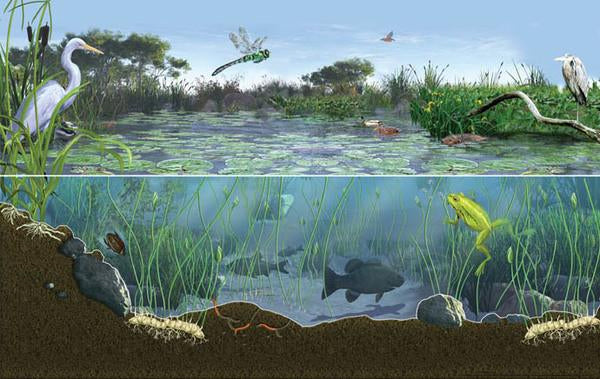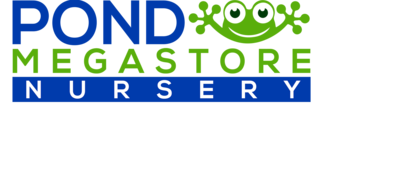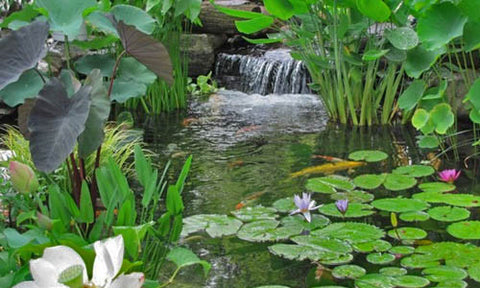Hey Friends,
I hope you are enjoying another season with your backyard pond.
When you bring a water feature into the landscape, you add more than aesthetic value, you actually create an ecosystem!
Building or creating a pond, wetland garden or bog, helps to create a habitat for wildlife like birds, frogs, dragonflies, butterflies, and turtles.
The plants you choose will provide cover, housing and perhaps a food source, as well as nesting grounds for egg laying. When adding tadpoles to your ponds, not only will the tadpoles eat any mosquito larvae in the water, but when the tadpoles mature into frogs, they will eat any pests that show up in your water garden feature. Honey bees will help to pollinate plants in your area. Dragonflies will eat mosquitoes, mosquito larvae and other insect larvae as well as other flying insects. Monarch butterflies will lay eggs on a plant named Asclepias, or Mexican Butterfly Weed, a member of the milkweed family. This plant provides food for the hatching butterfly larvae. If you are planting sedge or grasses, you are providing cover for birds. Some grasses produce seed and also provide food for birds as well.
When you place koi or goldfish in your pond water, they will naturally help to fertilize plants in your pond with their waste. (Try to remember, that whatever you place in your water garden, it WILL have an effect on the quality of life in the water garden environment). Let's say, for instance, that you are a fish lover and greatly admire the koi in you pond. You may feed them to bring them to the surface so that you can admire their colors, patterns and fancy fins. HOWEVER, if you OVERFEED them you will definitely have an algae issue because the fish waste will be more than your plants can possibly take up. I am surprised that people are surprised by this fact. They are usually shocked and disappointed that they have created the problem with algae by overfeeding. As I mentioned earlier, everything you add to the ecosystem that you have created, will be positive or negative.
Adding natural bacteria will often help with the quality of the water. Bacteria is always present in a pond. There are two types of good bacteria, aerobic and anaerobic, both types of these good bacteria help to break down organic matter in your pond. Adding good bacteria often hastens the decomposition of organic matter in your pond. It is important to aerate your pond to aid with the decomposition of organic matter as well.
Adding plants to your pond, water feature or bio filter ALWAYS improves the quality of water in your pond. Once you begin a cycle of chemicals, it is hard to stop. Be thoughtful about what you add to your pond's environment and I am sure that you will have a much better outcome.
Submerged Oxygenating Plants, Floating Plants, and some marginal plants provide the best nutrient uptake to keep water clean and clear. Be sure you are not overfeeding fish
multiple times per day, as this will lead to water issues. Also fish will never starve in the pond, there is plenty of algae, plankton like diatoms, as well as little bugs in the water for fish to eat. Fish food companies will never tell you that information.


